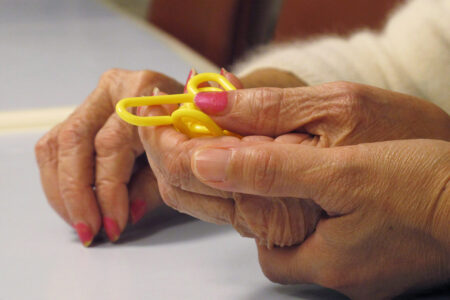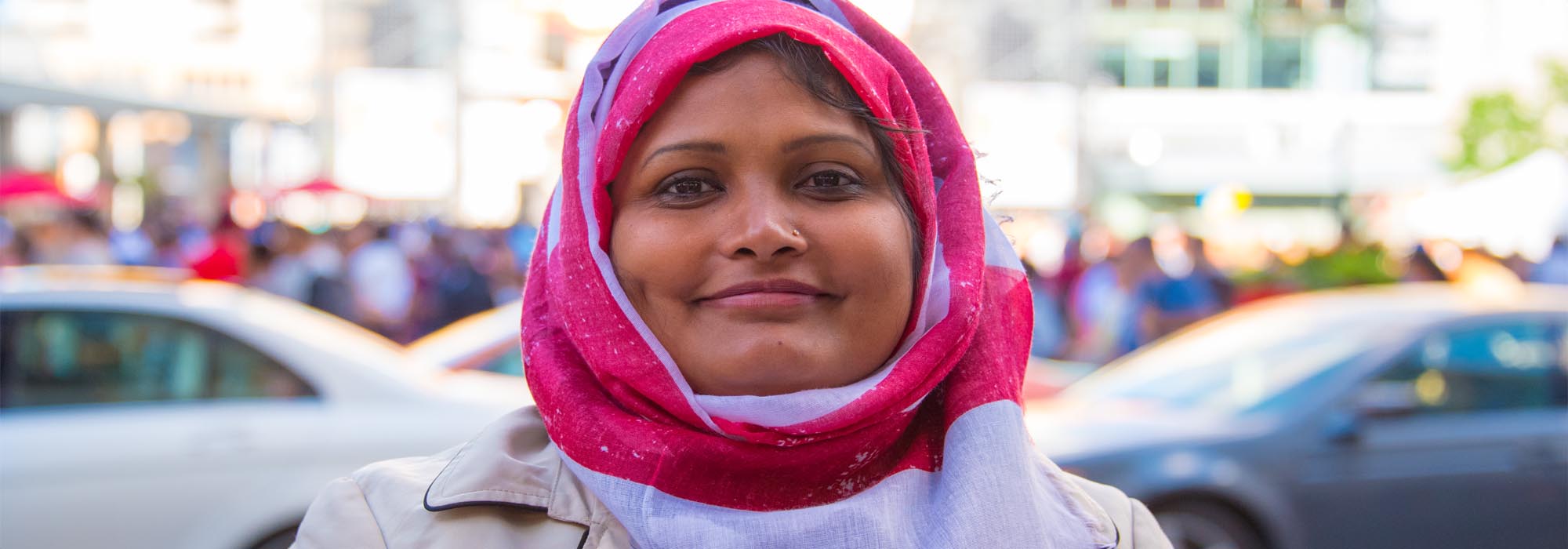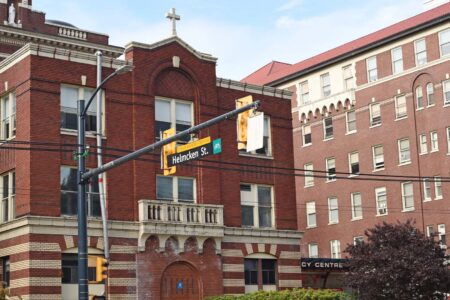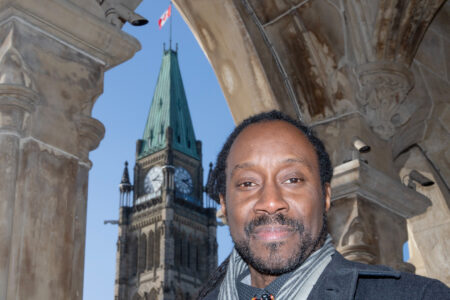
November seemed to be religious freedom month in Ottawa. The month was book-ended by two significant Supreme Court of Canada hearings on religious freedom. The Supreme Court also released a decision on religious freedom for First Nations peoples. And two parliamentary committees held hearings on issues related to religious freedom. As if that was not enough, in her first speech, the governor general saw fit to weigh in on religion. All these events have served to air a variety of viewpoints on the place of religion in Canada. If the confluence of these events has a broader lesson, it is that if we are serious about embracing diversity, we have to include religion in the dialogue.
Her Excellency Julie Payette, Governor General of Canada, kicked off the month of religious controversy with a speech on November 1, where she expressed incredulity that some people believe that life on Earth is a “divine invention.” To be fair, she also took aim at people who believe in astrology and homeopathic medicine. But for the governor general, whose role is intended to be politically neutral, to be disdainful of significant parts of the population was highly controversial, to say the least. It was even more so because the prime minister and several cabinet ministers supported her.
Then on November 2, the Supreme Court heard the case of Highwood Congregation of Jehovah’s Witnesses v. Wall. Many were amazed that this case got as far as this in the courts. The Supreme Court questioned why it would ever engage in this kind of internal religious issue. Randy Wall was disciplined by his congregation for excessive drinking and abusing his wife. But when he was “disfellowshipped,” he lost half his business. He is a real estate agent, and many of his clients were members of his congregation, so he launched a legal challenge against this instance of church discipline. Courts usually stay out of these kinds of issues, and the Alberta Court of Appeal was willing to consider the case only because there were economic issues involved.
The same day, the Supreme Court handed down its decision in Ktunaxa Nation v. British Columbia. This was the first case concerning First Nations religious freedom. The court ruled against the Ktunaxa Nation, which was trying to prevent a ski hill development on its sacred mountain. The court said that it was being asked to protect the object of beliefs, which is beyond the scope of what courts can do.
Then there was the odd situation of two parliamentary committees holding hearings simultaneously on seemingly contradictory issues. The Heritage Committee was considering a private member’s motion, M-103, proposed by Liberal MP Iqra Khalid. The motion requires the Heritage Committee to conduct a study on how racial and religious discrimination can be reduced in Canada. While the event that inspired the motion was a shooting at a mosque after Friday prayers last January, the hearings were quite broad, and many religious leaders presented before the committee.
Meanwhile, down the hall, the Justice Committee was holding hearings on Bill C-51, the so-called “zombie-law bill.” The stated purpose of this bill was to remove from the Criminal Code sections that have been struck down as unconstitutional or that are obsolete. One of the provisions to be removed was s. 176, which makes it an offence to disrupt a “divine service.” While there have not been many convictions under this section, someone was charged within the last year for disrupting a church service in Ottawa.
The fact these hearings were being held simultaneously is ironic. One committee held hearings on how religious discrimination can be reduced (sparked by an incident after a religious service at a mosque), while another was being asked to remove the legal protection of such a religious service. Another irony: the president of the university where I teach, Trinity Western University, appeared before the Heritage Committee, and the same day I appeared before the Justice Committee. The Justice Committee was convinced by the many religious leaders who appeared in favour of retaining s.176 and ultimately recommended that it not be removed.
The most controversial issue came up at the end of November. It involves Trinity Western University. I helped develop the proposal for a law school at Trinity, which is the subject of the controversy. The Federation of Law Societies, the umbrella association responsible for vetting new law school proposals, and the British Columbia minister of advanced education approved the project in December 2013. In 2014, however, the law societies of Nova Scotia, Ontario and British Columbia decided not to accept graduates of the law school. This meant that they would not be able to article or be called to the bar in those provinces.
The controversy was originally over the university’s Community Covenant, which defines marriage as being between a man and a woman. It requires that all members of the university community agree to refrain from sexual intimacy outside of that definition of marriage. Because law students would have to sign the Community Covenant, the law societies argue that it is an admissions policy that discriminates against LGBT persons. But the Law Society of Ontario and several interveners have raised broader issues, such as how much autonomy religious institutions have, what is the legitimate power of the state to require religious institutions to conform to social norms, who decides the religious practices of a religious community, such as a church, religious charity or faith-based university, and the limits on those practices.
That all these occurrences happened at the same time is perhaps a good thing. It has spurred a public dialogue on the place of religion in Canadian life. It has also provided an opportunity for a variety of perspectives to be aired in the media. That a broad array of actors was engaged in the broad topic of religious freedom — the governor general, Parliament and the Supreme Court of Canada — means that the issue has engaged three of the major powers in our public policy system.
It is healthy in a democracy to engage in public debate on controversial issues—and debate is often preferable to litigation. Politics and the decisions of the Supreme Court of Canada affect us all as citizens. While we may prefer to avoid religion and politics in polite conversation, the intersecting relationship between the two requires that we engage in public debate over them. Many Canadians are deeply religious and depend on legal protections that recognize their right to live out their diverse faiths in their public and private lives. To genuinely embrace diversity and inclusion, we must ensure that religion is part of the dialogue.
This article emerged from a round table in November titled ”Spirited Citizenship: Care, Conflict, and Virtue,” a Cardus/Angus Reid Institute initiative to mark Canada’s sesquicentennial anniversary.
Photo: Canada Day in Toronto. Shutterstock, by DayOwl.
Do you have something to say about the article you just read? Be part of the Policy Options discussion, and send in your own submission. Here is a link on how to do it. | Souhaitez-vous réagir à cet article ? Joignez-vous aux débats d’Options politiques et soumettez-nous votre texte en suivant ces directives.









